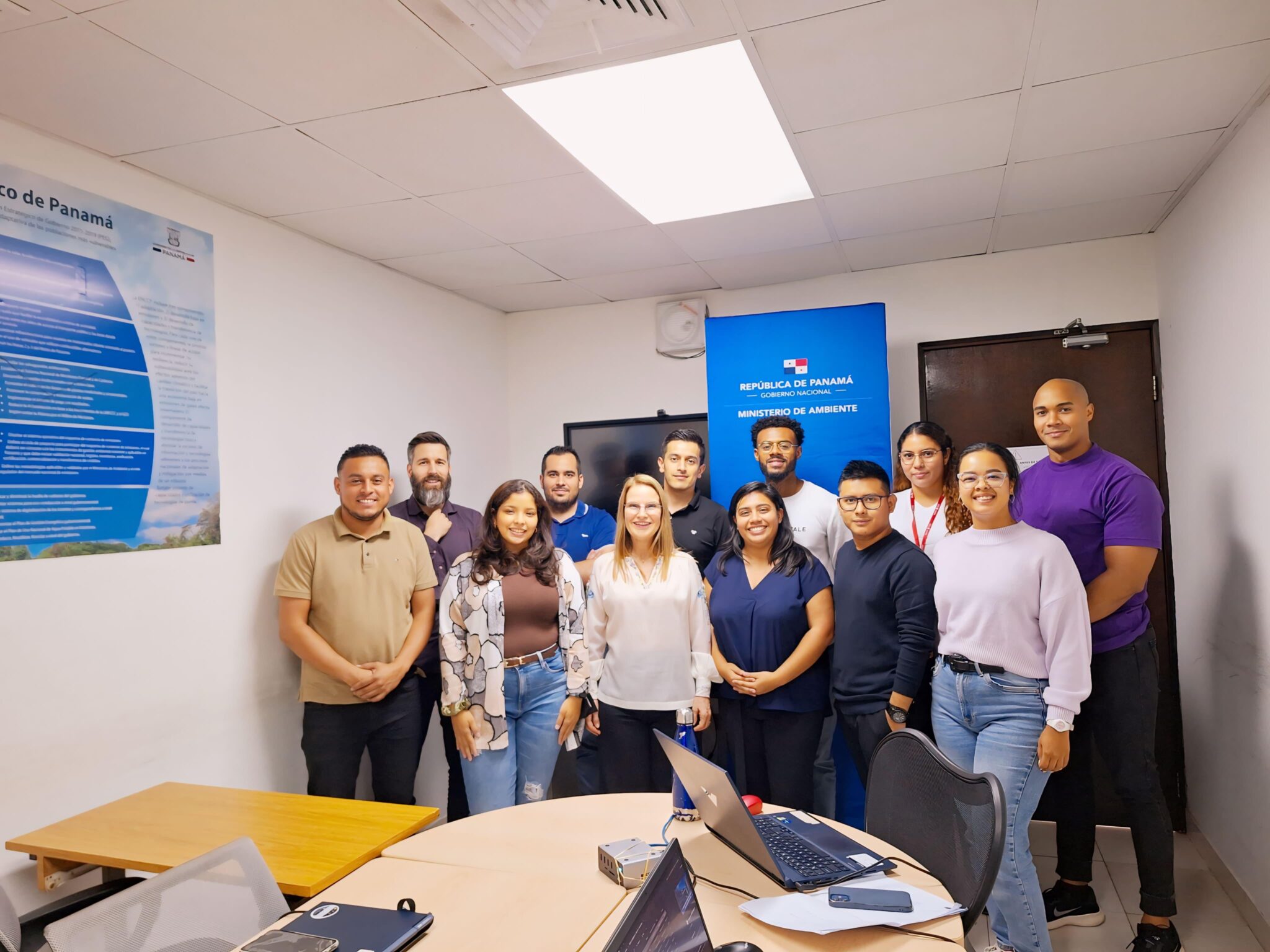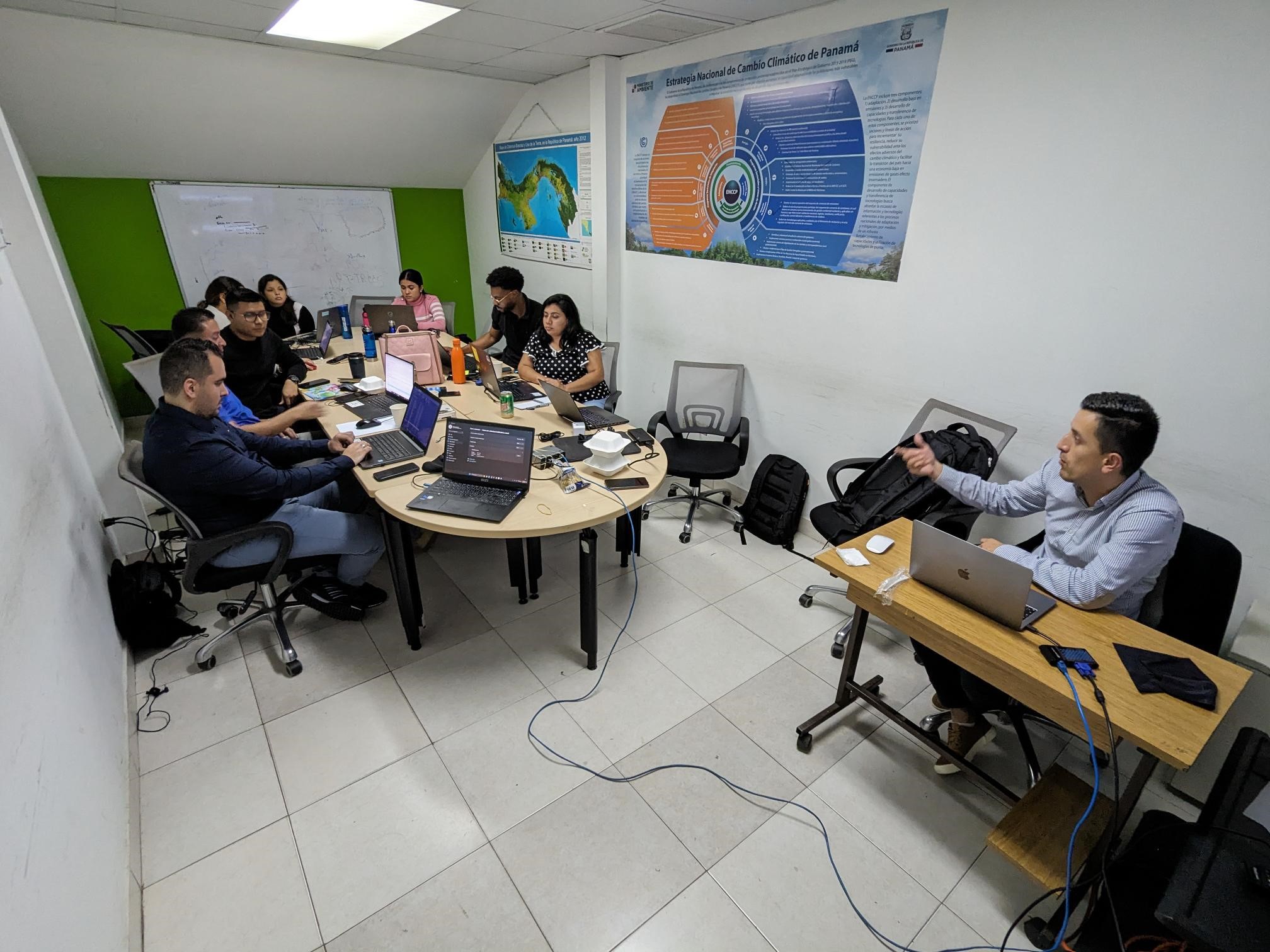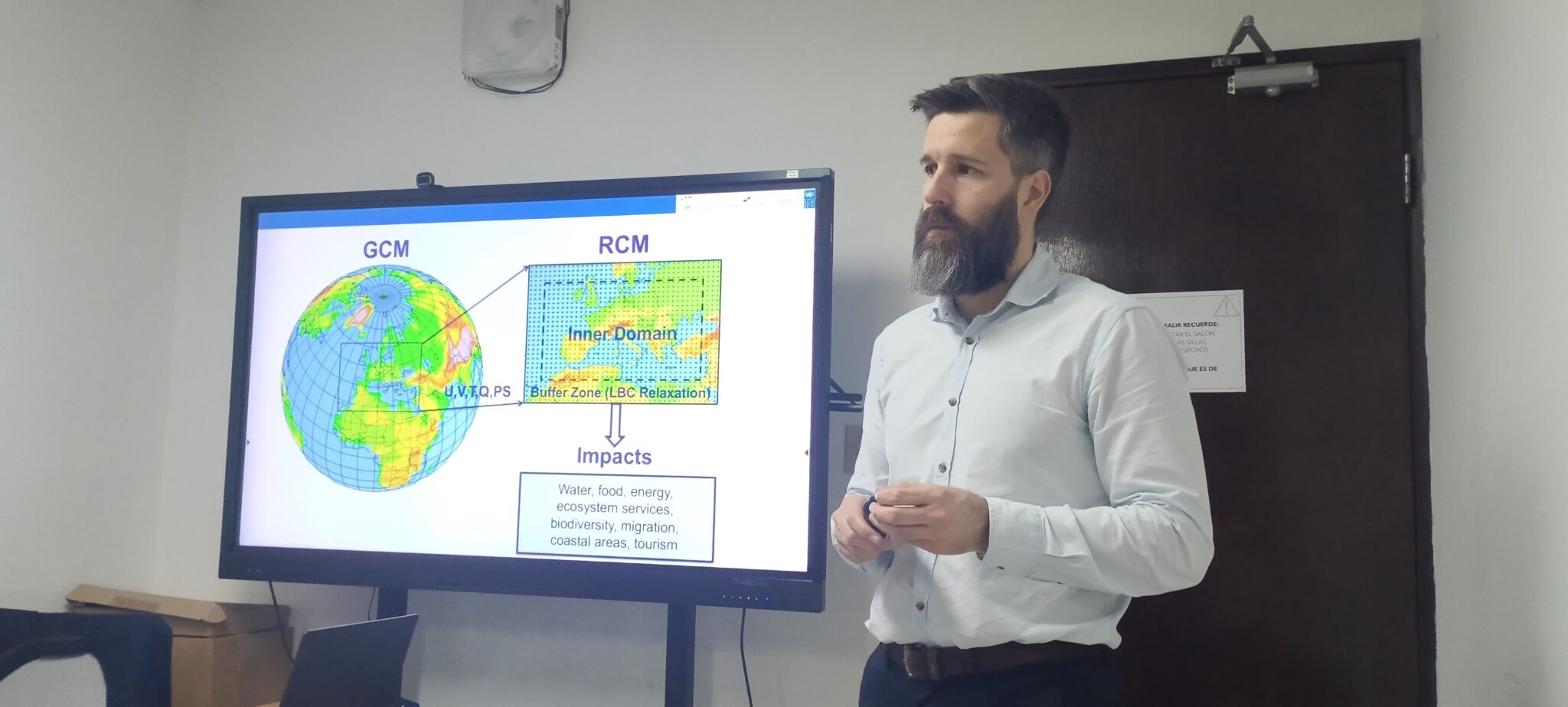IHCantabria has led the development of a project that generated climate change scenarios for Panama.

Technical staff from Panama’s Ministry of Environment pose in the photo with the Ministry’s National Director of Climate Change, Ligia Castro de Doens (in the center, front row), and the IHCantabria researchers who gave the training workshop: Manuel del Jesus Peñil, Salvador Navas and Diego Urrea Méndez (who are in the second row, first, second and third from the left)
The main objective of this project is to update climate forecasts for Panama, in order to anticipate and plan actions needed to address climate change in this Central American country
Members of the Hydroclimatology Group of the Environmental Hydraulics Institute of the University of Cantabria (IHCantabria) led the development of an innovative project in Panama, in which they generated climate change scenarios adapted to that region.
The results of this project were presented in Panama City by the researchers Salvador Navas, Diego Urrea Méndez y Manuel del Jesus Peñil -head of the Hydroclimatology Group of IHCantabria-, who also offered a training workshop to the technical staff of the Ministry of Environment of Panama, to teach them how to replicate the results obtained in the project entitled “Generation of climate change scenarios for Panama”.
The purpose of this project was to update Panama’s climate forecasts in order to anticipate and plan some of the actions that may be necessary to address climate change in this Central American country. For its development, the IHCantabria research team employed advanced statistical downscaling techniques, for different time periods and emission scenarios, in order to provide a detailed and accurate view of the future climate in Panama.
Statistical downscaling is based on the use of statistical models that empirically relate large-scale climate variables to local or regional variables of interest. The use of this statistical methodology has been crucial in the generation of climate change scenarios for Panama, because it has made it possible to understand the specific impacts, plan adaptation measures and encourage public participation in the fight against climate change in that country.
The specific objectives of this project include quality control of meteorological data, spatial and temporal reconstruction of climate variables, analysis of global climate models and comparison with local data, and generation of climate change scenarios through statistical downscaling. The work plan was structured into four key deliverables that were completed within five months of signing the contract. These products include reports on new climate change scenarios, advances in the development of analyses, results of statistical downscaling, as well as a methodological guide and products for dissemination and knowledge transfer.
“This project represents a significant step in Panama’s understanding and preparation for climate change,” said Manuel del Jesus, principal investigator of this project in Panama and head of the Hydroclimatology Group at IHCantabria. “We have provided the Ministry of Environment of Panama with the detailed information it required on the generation of climate change scenarios, which will contribute to informed decision making and the implementation of more sustainable adaptation measures in that region”.
The implementation of this project in Panama was financed by the United Nations Development Programme (UNDP) Climate Promise which supports countries to define and fulfill their pledges under the Paris Agreement and take bold steps towards a low net emissions, resilient and inclusive future. With the valuable contribution of its research staff, IHCantabria has demonstrated its experience and commitment in the search for innovative and sustainable solutions to address the challenges of climate change at the local, national and international levels.
This is a joint research institute that emerged thanks to the collaboration between two institutions: the Universidad de Cantabria and the Government of Cantabria, represented through the Fundación Instituto de Hidráulica Ambiental de Cantabria.

Group of researchers from IHCantabria, during the training workshop offered to the technical staff of the Ministry of Environment of Panama.

Manuel del Jesus Peñil, head of the Hydroclimatology Group of IHCantabria, during his intervention in the training workshop offered to the technical staff of the Ministry of Environment of Panama.



